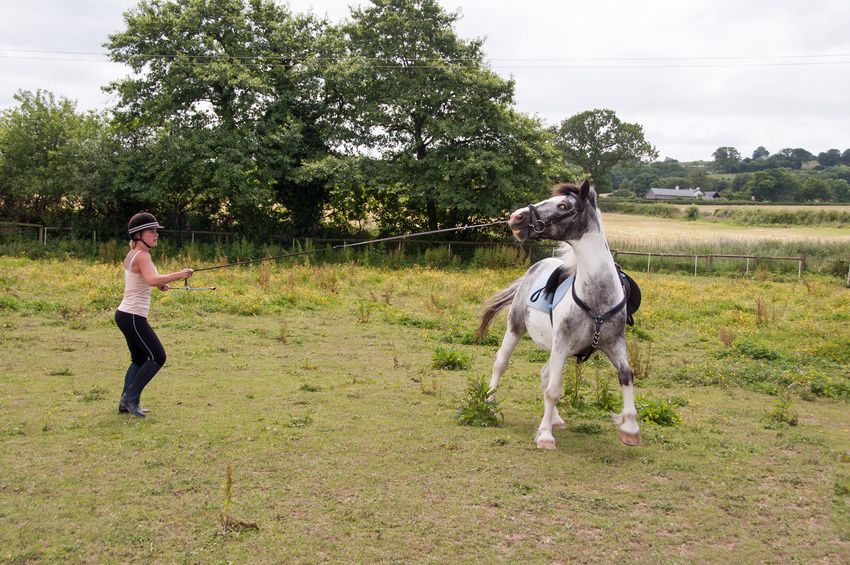Buying a horse is a long-term investment so it is vital to make a good choice. Unfortunately sometimes it is easy to fall into the trap of rushing into buying a horse that you have fallen in love with without giving enough thought to the relationship between horse and rider. Not only can this lead to problems in success of the relationship, but from a financial point of view, it can also be very expensive.
Ouch! So the worst happens and you have bought a horse which is proving to be a cross between a mule and a donkey or seems to be only worth sending for meat, in short, you have acquired the wrong horse, or even worse, a bad horse.
It often comes about from the language used to sell a horse which can often hide the truth or the real difficulties. Perhaps you weren’t really able to know how to assess its true physical condition, behaviour or mental state…or perhaps you forgot to follow the fundamental procedures necessary for any purchase of a horse? So, with that in mind, here are the certain signs you should always look out for.
Unpredictable, but Manageable Behaviour
The behaviour of any horse is directly linked to its education. Being subject to ill treatment, suffering deep-rooted pain which can reappear, having confirmed fears or being traumatised can all affect the natural behaviour of a horse.
To find the root of these situations and get the horse to trust humans again, can often require tremendous perseverance and patience. Before making any commitment you need to try out your new ride and don’t be seduced purely by how it looks or among other things, for example, that it has a pretty coat colour.
A ‘bad’ horse will not be able to develop its way of going or its paces, nor will it be able to jump. It will be reluctant to be ridden, will kick in its stable, whinny and snort, it will have vices, be quick to bite, be moody and unpredictable, be easily over-excited and will even buck in its box. If frightened, there is the risk that it may even become violent, spinning around and becoming uncontrollable. It will resist all efforts to manage it and be antisocial with its companions, or it will constantly cause the rider problems in its efforts to always be at the front of any group. If he won’t leave the stable, flattens its ears against its head and has a look of panic in its eyes, it is not going to respond to any form of work.
Before you buy, think carefully and analyse its behaviour as well as identifying its potential for progress or any improvement in its behaviour.
More Complex Handling
The horse may also refuse to load into a trailer or even worse, will risk hurting itself. In short it has to relearn everything. Whilst it does depend on what kind of work you want to do with your horse and whether you want to do hacking or competitions etc in the long term, any sort of difficult behaviour is a bad sign of things to come. Ultimately, whether you choose a horse that needs to learn from scratch and that you can retrain or whether you choose one that is already well-trained and will easily do what you want, will depend on your own ambitions, ability and experience. However, before all of that, it pays to think ahead and take the time to make careful observations.
An Over-Enthusiastic Seller
If the horse displays questionable behaviour right from the start, then don’t be fooled by a seller who claims that ‘he has never done that before, it’s really out of character’. Not only that, but if the seller appears to be rushing you or seems particularly relieved at the point of the sale as if ridding themselves of a great burden, then be warned. If you take someone with you - and we do advise you to do that – and they are less enthusiastic than you are during that initial visit, then find out why they feel that way and give yourself time to reflect.
A Professional Vetting Avoids Nasty Suprises
The vet can check the conformation, heart, lungs for any obvious defaults in a horse of good health, however, you need to know if they have a tendency to colic and if their teeth and feet are in a good condition. The vet can indicate any potential concerns or chronic weaknesses. In this way, you can make an informed choice without being flogged a horse which may turn out to be a bad deal.
RODI's Top Tips
- Don’t give in to irrational impulses when buying your horse
- Before you buy organise a professional health check from the vet and the osteopath
- Take a professional or a knowledgeable friend with you before finalising the sale. Advice from an objective third-party can help you make a good decision before committing yourself
- Try the horse before you buy, to see if things are going to work out in the long term









